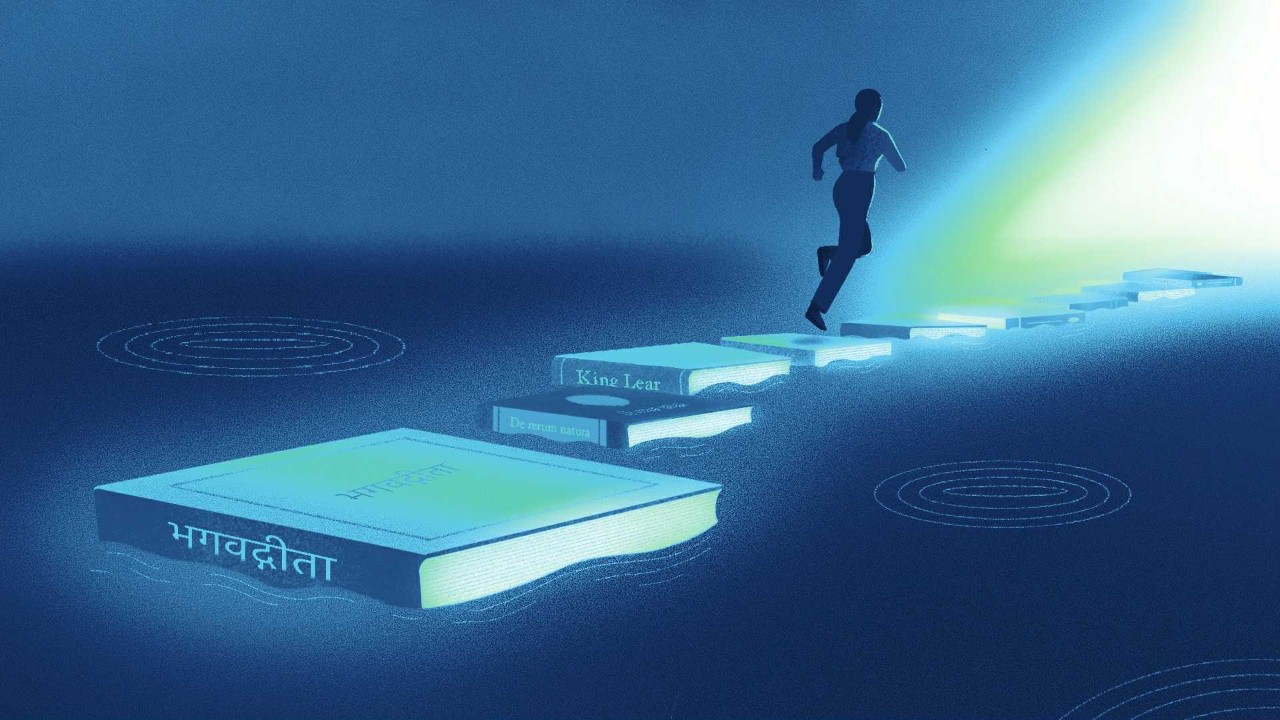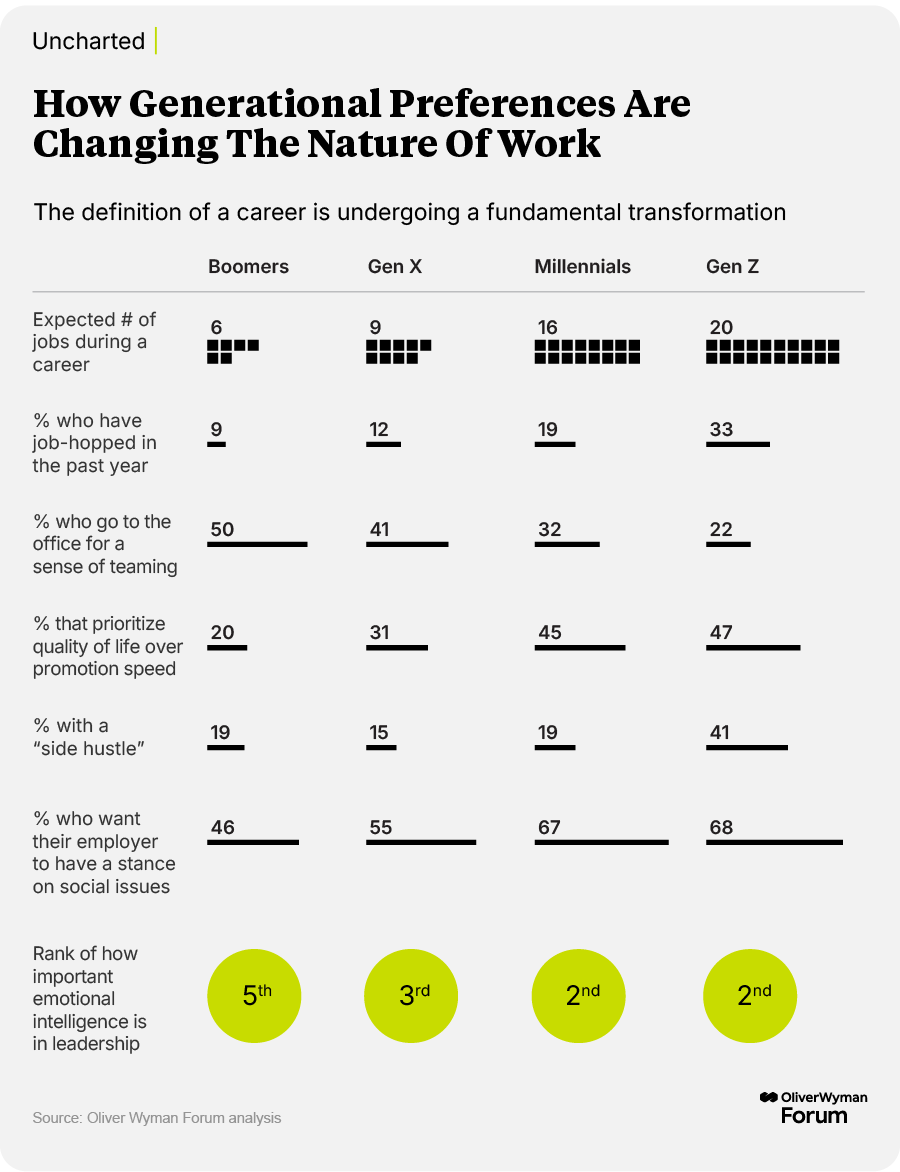By John Romeo
Leaders are busier than ever in today’s world of constant disruption. There is pressure to decide and act quickly even amid great uncertainty and information overload. But that’s all the more reason to hit the pause button, especially for those of us entering the peak summer season in the Northern Hemisphere.
The summer offers an opportunity not just to rest, but to reflect and reset. To step back from the noise and ask ourselves: Are we truly moving forward or simply running in circles? Are we making space for thought or being overwhelmed by the immediacy of emails, meetings, and the next big thing?
In a world of relentless change, the value of a pause becomes greater than ever. It’s a moment to step back, to process, and to consider how we can lead with clarity and resilience.
I take an extended holiday with my family every summer and rarely feel the need for a break — until I’ve actually decompressed. The separation from the day-to-day noise and headlines gives me a chance to reflect more deeply, to think slow. That distance from the routine can provide fresh perspective on priorities, how to tackle problems, new people I want to engage with, new challenges I want to take on, and things I can try to change about myself and the world.
Whether you’re preparing to take a summer break or have already done so, embrace the pause — not as a sign of weakness or indecision but as a strategic act of leadership. Use this time to reflect on your priorities, to think about what is working and what isn’t, to read and invest in continuous learning, to process and prepare for the unpredictable road ahead, and to have fun with family and friends. Because in a world where the only certainty is uncertainty, those who take the time to think and weigh their options carefully will be the ones who lead with purpose and agility.
May your summer break be a time for thoughtful renewal. The time for action will come soon enough.
John Romeo is CEO of the Oliver Wyman Forum
Past is prologue, in the words of Shakespeare, which may explain why many leaders are reading books on history and leadership for insight into the best ways of meeting today’s challenges. Others are turning to classic works of philosophy, culture, and literature for enlightenment, perspective, or diversion.
Here are select recommendations from members of the Oliver Wyman Forum community.
Paul Thwaite, CEO of NatWest Group, is hoping to find time to reread “The Fabric of Reality,” by quantum computing pioneer David Deutsch. “It’s a challenging read but ultimately optimistic about how the best of science and tech can help us all progress, which seems particularly relevant today.”
Lynn Martin, president of the New York Stock Exchange, is reading “The Anxious Generation: How the Great Rewiring of Childhood Is Causing an Epidemic of Mental Illness,” by Jonathan Haidt. “As a mom of two, one of whom is a teenager, I am trying to figure out how to integrate technology into their lives in a way that keeps them very much present in the 3D world.”
Sebastian Mallaby, senior fellow for international economics at the Council on Foreign Relations, recommends “Spinoza: A Very Short Introduction,” an “elegant study” of the philosopher by Roger Scruton. “Spinoza lived in the 17th century, a time of rapid scientific progress and unsettling political change that echoes today’s AI era,” Mallaby says.
Lionel Assant, global co-CIO of Blackstone, recommends the French novella “Le Petit Prince,” or “The Little Prince,” by aviator and writer Antoine de Saint-Exupéry. “It is a good reminder that adults take themselves too seriously,” he says, “and that children's imagination is the gift of life.”
Sean West, author and co-founder of Hence Technologies, likes “Geopolitical Alpha: An Investment Framework for Predicting the Future,” by Marko Papic. “The core insight of this handbook on how to navigate geopolitical risk is that we can no longer assume leaders have good intentions, so we are better off understanding what they can't do than what they want to do.”
John Doyle, CEO of Marsh McLennan, recommends “Leadership: Six Studies in World Strategy,” a 2022 book in which Henry Kissinger assesses the lessons provided by Konrad Adenauer, Charles de Gaulle, Margaret Thatcher, Lee Kuan Yew, Anwar Sadat, and Richard Nixon. “I have read many books over the years on leadership and this one caught my attention,” says Doyle.
Kenneth Rogoff, professor of economics at Harvard, recommends “Muppets in Moscow: The Unexpected Crazy True Story of Making Sesame Street in Russia.” It recounts how an American documentary filmmaker overcame cultural differences and anarchy in the post-Soviet 1990s to bring a localized version of “Sesame Street” to Russian television. “It’s truly an amazing story,” he says. It’s also a love story that recounts how Rogoff met and married the documentarian-turned-author, Natasha Lance Rogoff.
Yana Peel, president of arts, culture, and heritage at Chanel, is rereading “Tender Is the Night,” by F. Scott Fitzgerald. “I’m embedded in a restoration project of La Pausa, Gabrielle Chanel’s villa in the south of France, and I love the way the novel conjures the glamour and creative energy of life during the Roaring Twenties,” she says.
Stanley McChrystal, former US Army general and founder of consultancy McChrystal Group, liked “Waging a Good War: A Military History of the Civil Rights Movement,” by Thomas Ricks. “We often view the Civil Rights Movement as a series of marches and murders,” he explains. “Its complex reality reflected the discipline and deft orchestration of a great military campaign. Little of real value, we are reminded, is accomplished without service and sacrifice.”
Charles Myers, chairman of Signum Global Advisors, recently finished “The Demons of Unrest,” a history of events leading up to the US Civil War, by Erik Larson. “It has some interesting parallels to the deep political polarization and division in the United States today.”
Gabriel Lim, CEO-designate of Seviora Holdings, an asset management subsidiary of Temasek Holdings, recommends “Hard Truths to Keep Singapore Going,” by Lee Kuan Yew, who founded the country 60 years ago and served as prime minister for three decades. “I find Mr. Lee's views on geopolitics, economic development, and social cohesion incredibly relevant in today's turbulent world,” he says.
Chris Perry, president of fintech Broadridge Financial Solutions, is reading “Trillion Dollar Coach,” a book of management lessons from legendary Silicon Valley coach Bill Campbell as related by three former Google executives, Eric Schmidt, Jonathan Rosenberg, and Alan Eagle. “The old expression ‘If you want to go fast, go alone; if you want to go far, go together’ is what comes to mind when reading about Bill and his approach to truly caring about all others,” says Perry.
Alastair King, Lord Mayor of the City of London, just finished “Can We Be Great Again? Why a Dangerous World Needs Britain,” by former UK Chancellor of the Exchequer Jeremy Hunt. “Clear and concise,” he says, “it highlights areas where the United Kingdom has the chance to show leadership in the world.”
Karthik Ramanna, professor of business and public policy at Oxford University’s Blavatnik School of Government, recommends “Caravaggio 2025,” a monograph commemorating the Palazzo Barberini's once-in-a-generation exhibition of some of the master’s best works: “It’s a pure aesthetic pleasure.”
Nick Studer, CEO of Oliver Wyman, praises “The Place of Tides,” a nonfiction work by English shepherd and author James Rebanks about a summer spent with an elderly woman caring for wild eider ducks. “Rebanks' prose, honesty, wit, and wisdom are soul-enhancing,” he says. “I read it in a day, and it reflated me for the holiday to come.”
John Romeo, CEO of the Oliver Wyman Forum, is reading “Destiny and Power: The American Odyssey of George Herbert Walker Bush.” The Jon Meacham biography provides eloquent evidence that the elder Bush was “one of the most underrated presidents,” says Romeo.
A selection of smart reads on business, technology, geopolitics, culture, and beyond.
- Millions Stolen, Death Threats: Should Banks Do More To Fight “Pig Butchering”? An examination of how an Oklahoma couple lost their life savings of more than $5 million to scammers, and whether banks and financial advisers have a responsibility to take greater preventive measures.
- Inside The Relentless Race For AI Capacity. A visual- and data-rich look at how the proliferation of AI data centers is changing the landscape of many countries.
- China Struggles To Break Its Addiction To Manufacturing. The country has doubled down on manufacturing investment since the bursting of its property bubble, creating deflationary pressures at home and exacerbating tensions with trading partners.
- Dispensable Nation. Donald Trump wants countries to submit to his demands, but what if the rest of the world decides to withdraw from the cooperative US-led order that has been the bedrock of American power, writes Kori Schake, director of foreign and defense policy studies at the American Enterprise Institute and former National Security Council member under President George W. Bush.
- Why Did Hollywood Stop Making Comedies? A Statistical Analysis. Audiences are eager to see more funny films, but studios prefer to milk the IP of action and horror franchises with a parade of sequels, according to data science consultant Daniel Parris.
- Extra! Extra! Read All About The Last Newspaper Hawker In Paris. He’s no Jean Seberg, star of the Jean-Luc Godard film classic “Breathless,” but Pakistani native Ali Akbar is still enchanting residents of Paris’ Left Bank after half a century of selling newspapers.
Every month, we highlight a key piece of data drawn from more than four years of consumer research.


